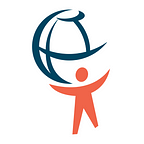Hope for a Safer Internet: How the Philippines is Protecting Children Through Proactive Legislation
Most nations, including the Philippines, have a history of challenges when it comes to the online protection of vulnerable children. In 2016, UNICEF described the Philippines as the epicenter of the live-stream sexual abuse trade and noted that about 80% of Filipino children were at risk of exposure to online sexual violence.
While the Philippines has laws in place that offer some level of child protection, the continuous evolution of the internet has made it increasingly difficult to anticipate and combat the corresponding increase of online sexual abuse and exploitation of children (OSAEC). And, with the abundance of child sexual abuse material (CSAM) originating in the Philippines, some of the initially forward-thinking laws have fallen behind in providing adequate protection for children today.
Recognizing the need for proactive measures to strengthen the child protection framework in the Philippines, the International Centre for Missing and Exploited Children (ICMEC) established a cross-sector working group of dozens of professionals. This group analyzed real-world challenges faced when navigating the Philippines existing child protection legal frameworks and developed a position paper outlining recommendations for improvements including:
- New legal provisions that require Internet Service Providers (ISPs) to preserve and take down CSAM.
- Internet intermediaries being held accountable to create proactive change.
- A new legal provision to allow law enforcement agents to have access to non-content data, giving them a holistic picture of the information that could be requested via a subpoena.
- A national reporting mechanism that has only one referral pathway which would be established to replace the Department of Social Welfare and Development (DSWD)-headed Interagency Council Against Child Pornography with the “National Coordinating Center Against Online Sexual Exploitation and Abuse of Children”.
- Additional exemptions to the Bank Deposit Secrecy law.
- A provision regarding the Anti-Money Laundering Council (AMLC) information sharing activities.
These recommendations were then incorporated into the revised Republic Act №11930, also known as the Anti-Online Sexual Abuse or Exploitation of Children (OSAEC) and Anti-Child Sexual Abuse or Exploitation Materials (CSAEM) Act (“Anti-OSAEC law”) proposed by the Philippines government. This law pushes forward critical protections that are needed for children.
At its core, the revised Anti-OSAEC law increases the accountability of social media platforms, electronic service providers, internet intermediaries, as well as related financial intermediaries associated with any reported activity of online sexual abuse or exploitation of children. Most importantly, to help combat, track, and prevent CSAM from spreading, internet intermediaries will now be held responsible for taking down the material, preserving it as evidence, and sending the evidence to law enforcement agencies. Additionally, the Anti-OSAEC law now penalizes those who provide, access, or share child sexual abuse material. This law goes even further for law enforcement agencies as it provides them the tools to effectively scope and investigate OSAEC cases. Not only were the recommendations highlighted by ICMEC implemented, but they also transformed the child protection framework in the Philippines into a progressive law aimed at powerfully combating OSAEC and CSAEM.
This legislative win has instilled hope and encouragement for lawmakers and children’s advocates in the Philippines. It is seen as marked progress that will facilitate work between different agencies to better coordinate and combine resources to protect vulnerable children.
Safeguarding children is a responsibility that the global community shares and the more proactive the measure, the less reactive individuals will need to be in the fight to protect the safety of children. The Financial Coalition Philippines Working Group is a clear example of what we can accomplish when we work together. With our collective efforts, we were able to evolve legislation and enact change.
Bindu Sharma, Managing Director, Asia Pacific
We extend our thanks to the members of the working group, whose contribution of time and expertise have resulted in legislative improvements benefiting the children of the Philippines and around the world. To read the full position paper and all recommendations, click here.
